Here's how opera companies can take a role in shaping public policy
In the midst of another heated presidential election year, the arts and culture sector can feel like an afterthought compared to the political forces and factions that dominate news cycles and debates. That isn’t to say that opera companies can’t or shouldn’t play a pivotal role in their local communities during this democratic exercise.
Like all 501(c)(3) organizations, opera companies are prohibited from opposing or supporting a particular candidate or political party. However, they can engage in nonpartisan civic activities like election candidate forums, town halls, and community meetings. They can offer up their venues to host such events or even function as polling places. They can reinforce the importance of registering to vote at their performances and in their promotional materials. And they can work to educate all election candidates at all levels of government about the many benefits of the arts and cultural sector. Such activities are civic responsibilities, not an exchange of favors meant to curry favor or special treatment.
OPERA America, like its member companies and the rest of the arts and cultural sector, will continue to advocate before the U.S. Congress and the White House concerning various issues that impact the opera community and the overall arts and cultural sector. Below are some strategies for engagement with elected officials and primers on the key issues facing the arts and culture sector in the 2024 election year.
Art and the Economy
Art is important for its own sake. It can build bridges between peoples and cultures and touch hearts and minds, as anecdote after anecdote demonstrates. Nevertheless, elected officials — including members of Congress, federal agency officials, and the White House — generally respond better to advocacy when those facts and anecdotes are bolstered by hard economic numbers.
Indeed, the stats paint a compelling portrait: Prior to the pandemic, the overall arts and cultural sector was a vital economic engine that directly employed more than 5 million workers. Data from the most recent annual economic impact report (March 2023) shows that the creative economy in 2021 represented 4.4% of the gross domestic product (GDP), or more than $1 trillion — a new high-water mark.
Still, while the total economic value added by arts and cultural industries grew by 13.7% from 2020–2021, several subsectors, including opera companies, dance and theater companies, music groups, and independent artists, have not returned to those pre-pandemic levels. Additionally, in 2021, just under 4.9 million workers were employed to produce arts and cultural goods and services. This was less than the 2019 level of 5.2 million, but more than the 2020 level of 4.6 million workers. Finally, the report also shows that although 49 states saw increases in arts and cultural employment from 2020 to 2021, no state has reached its 2019 level.
Put another way, the numbers show that the creative sector is in recovery, but also that more investment is needed to return some subsectors of the arts, including the opera community, to their prior level of output and prominence.
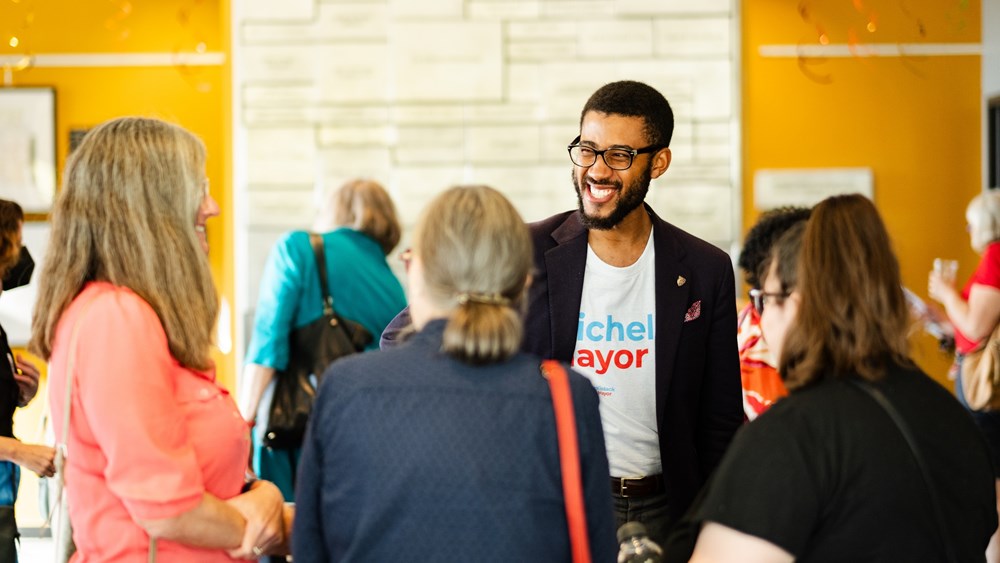
NEA Funding and Arts Caucuses
So where would that investment happen? The National Endowment for the Arts (NEA) is the only arts funder in America, public or private, that supports the arts in 50 states, the District of Columbia, and U.S. territories, but it’s common knowledge that the NEA has historically received only nominal funding from the U.S. Congress. It would take a significant amount of funding to build up its capacity to support the overall arts and cultural sector.
There has been good news on that front. In recent years, thanks in part to effective advocacy from OPERA America and its member companies and allies, the NEA received increased funding — from $155 million in 2019 to $207 million in 2023. The NEA also received $135 million in emergency funding from Congress during the recent pandemic.
Part of OPERA America’s advocacy strategy was to engage with the arts and cultural-related caucuses on Capitol Hill. These caucuses are congressional groups that support the arts and cultural sector within their states and local communities and advocate before their colleagues about the need to advance the sector through continued federal investment and other policies. In the current session of Congress, there are five such caucuses, including four in the U.S. House of Representatives and one in the U.S. Senate: the Congressional Arts Caucus; the Congressional STEAM Caucus (STEAM stands for science, technology, engineering, arts, and math); the Congressional Humanities Caucus; the Recording Arts and Sciences Congressional Caucus; and the Senate Cultural Caucus.
OPERA America encourages all members to urge their U.S. representatives and senators to join the congressional arts and cultural-related caucuses and to continue in their support for increasing funding to the NEA.
Charitable Giving Incentives
In March 2020, Congress created a $300 charitable deduction for taxpayers who don’t itemize their taxes. Later, the deduction was expanded to $600 for joint married filers and extended through 2021, and it expired at the end of that year. There is ample data showing that this deduction helped incentivize the increased giving that allowed many arts-related companies and nonprofit organizations to maintain their operations and staff during the recent pandemic.
OPERA America is working to reestablish and increase that tax benefit, and the opera community can and should join that effort by urging their U.S. representatives and senators to pass this legislation that will help support the performing art sector. Bipartisan legislation — H.R. 3435 and S. 566 — introduced in the U.S. House and Senate earlier this year would extend and increase this universal non-itemized charitable deduction in taxable years beginning in 2023 or 2024 up to one-third of the standard deduction, or around $4,500 for individual filers and around $9,000 for joint filers. The standard deduction for tax year 2023 will be $13,850 for individual filers and those married filing separately and $27,700 for married joint filers. The arts and cultural sector can help get H.R. 3435 and S. 566 across the finish line by explaining how this federal tax relief has helped to support various public performances and programming during the recent pandemic.
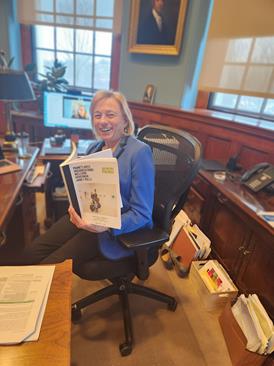
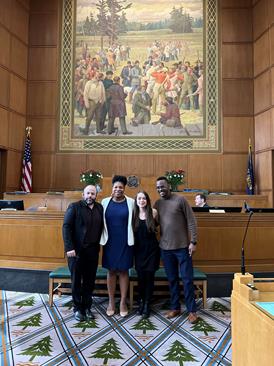
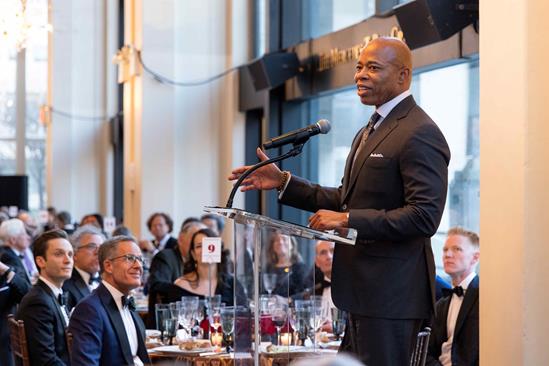
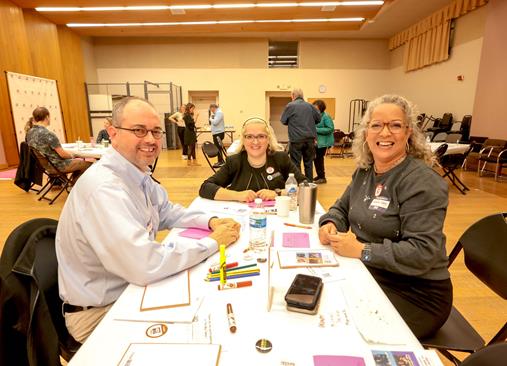
Visa Fees on the Rise
Another issue currently at play is the cost of bringing international artists and creative workers to the U.S. The U.S. visa process for international guest artists has long had a reputation for being unreliable, time-consuming, and expensive. In January 2023, the U.S. Department of Homeland Security proposed a rule (USCIS-2021-0010) that would impose significant increases to some of its filing fees, including for O and P artist visa applications filed by U.S. petitioners, as well as other adverse policy changes.
This proposal is something that the federal agency has proposed every few years to support its operations and maintain staff. If the increases pass, the new fees could deprive American audiences of global talent and also cost American artists important employment opportunities and sources of income. Many American artists work alongside international guest artists to provide the productions, educational events, and programming that families and local communities enjoy. Many arts-related companies, nonprofit organizations, independent artists, and other creative workers simply cannot afford the fees associated with filing petitions.
OPERA America and other arts service organizations made a strong case against the proposed fee increases during the public comment period, which has now closed. The federal agency is expected to issue its final decision in March 2024. At this time, OPERA America members and the opera community can contact their U.S. representatives and senators to urge them to lean in with the federal agency to withdraw the proposed rule.
There are several ways that the opera community can get involved as effective advocates. First, companies should find out who their respective federal elected officials are. Second, companies should follow them on social media. (Most, if not all, federal elected officials are on one of the major social media platforms, like X.) Third, companies should invite their U.S. representatives and senators to public performances and programming. Lastly, companies should keep them updated via email about what is going on in the local arts community. It is always better to be proactive with advocacy efforts instead of reactive.
This article was published in the Winter 2024 issue of Opera America Magazine.

Tony Shivers
Tony Shivers is OPERA America’s director of government affairs.





